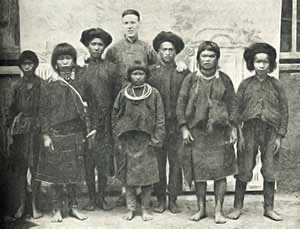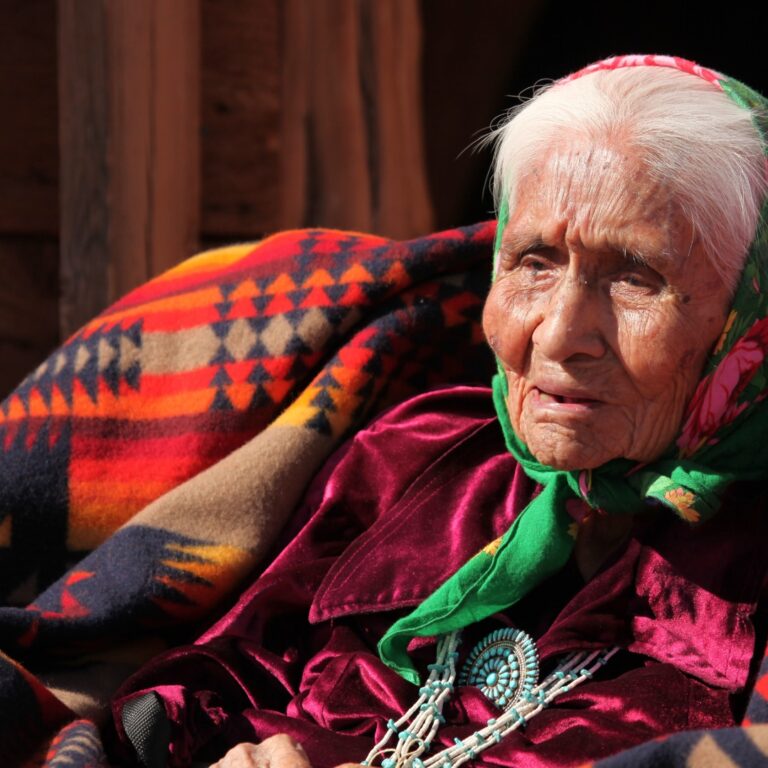Though I have written about J.O. Fraser (James Outram Fraser (富能仁; 1886–1938) before in this column, his stature amongst missionaries is such that a regular reminder is necessary.
Sean Cheng wrote in ChinaSource: “In the remote mountains and ancient forests of China’s Nujiang Grand Canyon, near the Myanmar and Tibet borders in Yunnan province, live the Lisu people (傈僳族). The community of about 900,000 is majority (80%) Christian, and the faith has been present among the people for over a century. The history of the sowing, germination, flowering, and fruiting of the gospel among the Lisu and the development of their written language trace back to the 1910s, with a missionary from England named James Outram Fraser." Fraser is remarkable because when he first went to the Lisu people there were no known Christian believers among them.
It is therefore worth once more studying his spiritual secrets.
1. He obeyed the Great Commission. As a student in London studying engineering, Fraser read the following words. “If our Master returned today to find millions of people unevangelised and looked, as of course He would look, to us for an explanation, I cannot imagine what explanation we should have to give. Of one thing I am certain - that most of the excuses we are accustomed to making with such good conscience now, we shall be wholly ashamed of then.” Fraser responded by joining the China Inland Mission and sailed for China. Has anything changed 100 years later in respect of “the excuses we are accustomed to making”?
2. He paid a price for Jesus. “A hundred years ago, the local ethnic minority Lisu were extremely poor, and their living conditions were miserable. People lived in raised huts made of woven bamboo and mud, with livestock animals stabled under the floor. They could only afford to eat rice and salty preserved vegetables, without any meat. Fraser struggled with physical weakness and his new diet often left him malnourished. The Chinese language was also difficult to learn.” Thus the language struggle and the living conditions made it almost impossible for him to carry out missionary work in his early days there. But he pressed on.
3. The specific call: When “Fraser first saw the Lisu, they were wearing bright tribal costumes and descending from the mountains at the market. He immediately fell in love with these people and was convinced he wanted to preach the gospel to them. ‘I was very much led out in prayer for these people, right from the beginning. Something seemed to draw me to them.’”
4. Holding on in spite of the early discouragement of the work. “The Lisu were highly superstitious and afraid of evil spirits, and they offered sacrifices to ghosts. When a newly converted Christian family encountered illness and difficulties in life, they often rejected their new faith. Moreover, many Lisu people regularly struggled with alcoholism and sexual promiscuity.” All this discouragement “led Fraser into a period of spiritual darkness and depression in the first years of his missionary work. He suffered setbacks and almost gave up.”
5. The help from his support team. “During one of his lowest points, he received a Christian publication from his British Christian friends. Fraser read that magazine again and again and found himself greatly encouraged by the words.‘I talked to Satan at that time, using the promises of Scripture as weapons,’ Fraser later recalled. ‘And they worked. Right then, the terrible oppression began to pass away.’”
6. Working with local believers. A pastry chef, Master Moh, decided to follow Jesus and hosted the nearby Lisu people at his home. He became an important asset to Fraser in evangelising the Lisu. Later, Ba Thaw, a Karen missionary from Myanmar, worked closely with Fraser.
7. Fraser’s use of Scripture. “By 1917, less than a decade after arriving in China, Fraser translated the Gospel of Mark into the Lisu language. He soon followed with the Gospel of John and a number of hymns.” “Fraser’s most acclaimed contribution to missions is his translation of the Bible and Christian hymns into the Lisu language. When he first met the Lisu people in Tengyueh, they had no written language of their own.” To this day the Lisu script he created is still used amongst the Lisu.
8. Prayer. Fraser highly valued the prayer support of Christians back home: “It is God who gives the increase, and this increase can be brought down from heaven by believing prayer, whether offered in China or in England. We are, as it were, God’s agents used by Him to do his work, not ours. We do our part, and then can only look to Him, with others, for His blessing. If this is so, then Christians at home can do as much for foreign missions as those actually on the field.”
Sources: Sean Cheng’s ChinaSource article











I find these emails so encouraging. Thank you. I have been in Malawi for 20 years and often feel discouraged but I know many seeds have been planted. God is at work.
Hi Joanna, thank you for taking the time to leave this comment. We all need encouragement and your comment has encouraged us, so thank you. We were never meant to do this on our own. Praise God we belong, and are part of His body. I would love to invite you to join our Facebook Group if you are not already a member. (FieldPartner Private Facebook Group)
Kind Regards
Shiyani